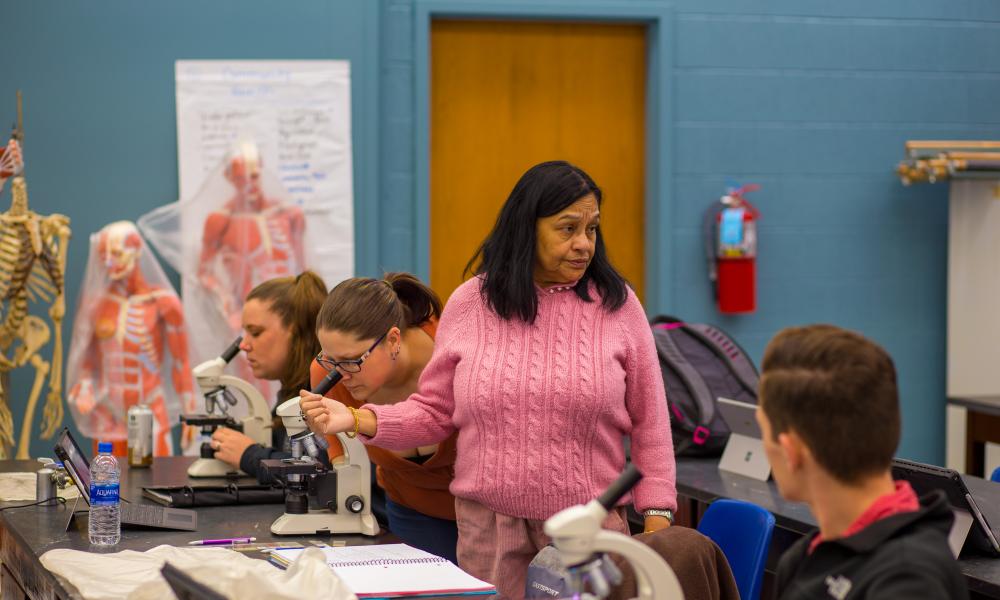
Illinois Eastern Community Colleges is preparing for the return of students to the classroom when the Fall Semester begins August 20. The Presidents and Deans at Frontier Community College, Lincoln Trail College, Olney Central College, and Wabash Valley College have been following the guidance of the Illinois Community College Board and the Illinois Department of Public Health and are taking proactive steps to prepare for the return of students.
The four colleges in the district will use a variety of ways to teach students this fall. Many IECC courses will continue to be delivered in a face-to-face format like they were before the pandemic. Face-to-face class sizes may be smaller, or the classes may be relocated to larger spaces that allow for social distancing. In all instances, these classes will adhere to IDPH guidelines and use of facial coverings will be required when social distancing is not possible. “From the onset, we have had two guiding philosophies,” says Chancellor Dr. Ryan Gower. “First, is to deliver the distinctive, interactive, and personal educational experience our students desire. Second, to do so in a fashion where we are protecting the health and well-being of our students, faculty, and staff. It is a delicate balance.”
IECC will also offer some classes in “hybrid” and “flex” teaching formats. In hybrid courses, students will attend in-person classes one or two days a week and then engage in remote learning on days when they are not in class. In flex courses, students will go to class on certain days, and on other days they will attend the class virtually remotely using Zoom, Teams, or another form of video chat. Flex teaching is similar to hybrid, with the exception that it allows for real-time student-to-student and teacher-to-student interaction.
A few IECC courses will be delivered in remote ways. In these courses, students will join the class virtually in real-time with the instructor and fellow classmates. In these courses, interactions will take place using Zoom, Teams, or another form of video chat. “While a few of our courses are built this way from the beginning, we are working to add the capacity to make this option available for any IECC student who indicates to us that their life circumstances would make this form of instruction necessary,” says Gower.
He says IECC is also looking ahead in the semester to help faculty members prepare. “I have spent many hours on the phone with presidents from other community colleges and consulted with epidemiologists and public health officials to discuss our plans for Fall, Spring, and Summer. There are many different options and approaches, but across the board, all parties are anticipating significant difficulties as we enter the traditional cold and flu season. Even if we do not see an increase in cases in District 529, we will see an increase in COVID symptoms which are very similar to flu or the common cold.”
Gower says all four colleges in IECC are preparing faculty and staff to move many face-to-face classes to remove instruction after the Fall break. He says faculty needed this guidance now to allow for adequate time to plan and prepare to prevent the same hasty transition that happened in March.
Students still have the opportunity to register for Fall Semester classes at each of the four colleges in the district. “We understand that parents and students are still very uncertain about going off to college in the fall,” says Gower. “I’ve spoken with many students who are attending IECC Colleges because they feel safer staying closer to home. Our excellent programs and low cost of attendance make us an obvious choice.” Students can learn more about programs offered by IECC visiting www.iecc.edu or by calling any one of the colleges to set up an appointment with an advisor.
